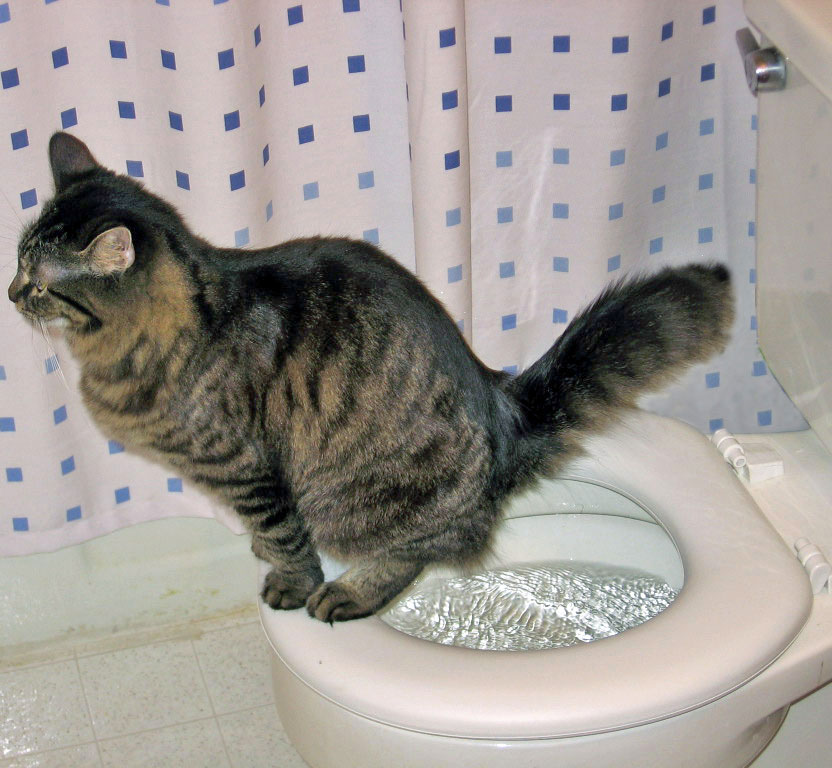Prevent Clogs and Damage: Never Flush Cat Poop Down Your Toilet - Professional Insights
Prevent Clogs and Damage: Never Flush Cat Poop Down Your Toilet - Professional Insights
Blog Article
The content following next involving Can You Flush Cat Poop Down The Toilet? is incredibly remarkable. You should investigate for yourself.

Introduction
As feline proprietors, it's essential to be mindful of exactly how we dispose of our feline pals' waste. While it might appear convenient to purge feline poop down the commode, this method can have harmful effects for both the environment and human health.
Alternatives to Flushing
Thankfully, there are safer and a lot more responsible ways to deal with pet cat poop. Think about the complying with options:
1. Scoop and Dispose in Trash
The most typical method of taking care of cat poop is to scoop it right into a biodegradable bag and throw it in the trash. Make sure to use a specialized trash scoop and take care of the waste quickly.
2. Use Biodegradable Litter
Choose eco-friendly feline litter made from products such as corn or wheat. These clutters are environmentally friendly and can be securely thrown away in the garbage.
3. Bury in the Yard
If you have a lawn, take into consideration hiding pet cat waste in a designated area far from veggie yards and water resources. Make certain to dig deep adequate to prevent contamination of groundwater.
4. Mount a Pet Waste Disposal System
Buy an animal waste disposal system specifically developed for feline waste. These systems utilize enzymes to break down the waste, decreasing odor and environmental influence.
Wellness Risks
In addition to environmental issues, flushing pet cat waste can likewise position health threats to people. Cat feces might consist of Toxoplasma gondii, a parasite that can create toxoplasmosis-- a possibly serious disease, specifically for expecting women and individuals with damaged immune systems.
Ecological Impact
Flushing cat poop presents dangerous virus and parasites into the supply of water, presenting a significant risk to water communities. These pollutants can adversely affect marine life and concession water high quality.
Conclusion
Liable family pet possession prolongs beyond supplying food and shelter-- it additionally involves appropriate waste monitoring. By avoiding flushing cat poop down the bathroom and selecting different disposal methods, we can minimize our environmental impact and protect human health and wellness.
Why You Should Never Flush Cat Poop Down the Toilet
A rose by any other name might smell as sweet, but not all poop is created equal. Toilets, and our sewage systems, are designed for human excrement, not animal waste. It might seem like it couldn’t hurt to toss cat feces into the loo, but it’s not a good idea to flush cat poop in the toilet.
First and foremost, assuming your cat uses a litter box, any waste is going to have litter on it. And even the smallest amount of litter can wreak havoc on plumbing.
Over time, small amounts build up, filling up your septic system. Most litter sold today is clumping; it is made from a type of clay that hardens when it gets wet. Ever tried to scrape old clumps from the bottom of a litter box? You know just how cement-hard it can get!
Now imagine just a small clump of that stuck in your pipes. A simple de-clogger like Drano isn’t going to cut it. And that means it’s going to cost you big time to fix it.
Parasitic Contamination
Believe it or not, your healthy kitty may be harboring a nasty parasite. Only cats excrete Toxoplasma in their feces. Yet it rarely causes serious health issues in the cats that are infected. Most people will be fine too if infected. Only pregnant women and people with compromised immune systems are at risk. (If you’ve ever heard how women who are expecting are excused from litter cleaning duty, Toxoplasma is why.)
But other animals may have a problem if infected with the parasite. And human water treatment systems aren’t designed to handle it. As a result, the systems don’t remove the parasite before discharging wastewater into local waterways. Fish, shellfish, and other marine life — otters in particular — are susceptible to toxoplasma. If exposed, most will end up with brain damage and many will die.
Depending on the species of fish, they may end up on someone’s fish hook and, ultimately on someone’s dinner plate. If that someone has a chronic illness, they’re at risk.
Skip the Toilet Training
We know there are folks out there who like to toilet train their cats. And we give them props, it takes a lot of work. But thanks to the toxoplasma, it’s not a good idea.

I came across that article on How to Dispose of Cat Poop and Litter Without Plastic Bags when surfing around the internet. Liked our blog entry? Please share it. Help other people find it. Thanks for taking the time to read it.
Hire A Pro Report this page